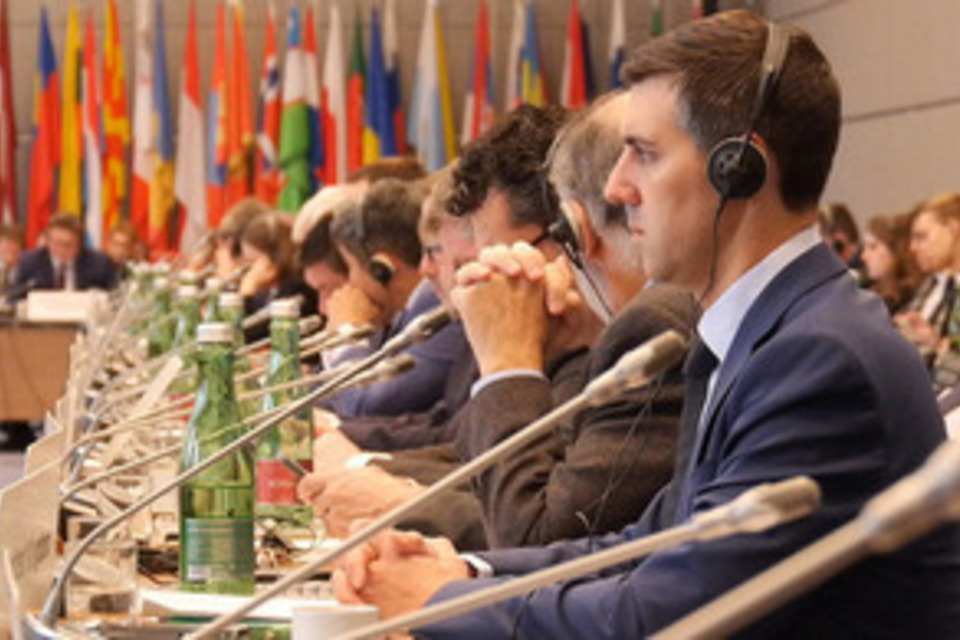Recent developments in Belarus: UK statement 11 March 2021
Ambassador Neil Bush speaks about the role of women in Belarus in the country's struggle for a more democratic future at the OSCE Permanent Council.

Thank you Madam Chair.
Earlier this week we celebrated International Women’s Day. I want to take this opportunity to highlight the brave women of Belarus and the critical role they have been playing in the country’s struggle for a more democratic future. In both the run up to and the aftermath of last August’s election, women have been at the centre of the opposition movement.
In Belarus, both men and women are equal in the eyes of the law. Nevertheless, there is a longstanding history of highly segregated gender roles in Belarusian society, and women are often dismissed as not being suitable or capable for leadership roles. But in May last year, Svetlana Tikhanovskaya submitted her application to run for President of Belarus. Supported by Maria Kalesnikava and Veronika Tsepkala, these women led the call for change, and inspired others to demand democratic change through the peaceful Women in White protests. This was despite comments from Lukashenko around the inability of a ‘housewife’ to lead their country.
Their call for change has been met by brutality by the Belarusian authorities. 141 criminal cases have been launched against Belarusian women. More and more women are being sentenced to prison terms based on politically motivated charges. Maria Kalesnikova remains in detention, the term of which has just been extended by a further two months.
The founder of the Belarus Press Club, Yulia Slutskaya, remains in detention, while Katsiaryna Barysevich, a journalist with Tut.by, was sentenced to six months in prison for reporting the facts around Roman Banderenko’s death. According to the Justice for Journalists Foundation, in 2020 382 female journalists in Belarus were attacked, and 11 were shot, stunned, or beaten up by the authorities.
Despite this, week after week, women continue to protest peacefully, calling for their rights to be recognised and their voices to be heard. Amongst these is 74 year old Nina Baginskaya, the Belarusian human rights activist who has been rallying for change for more than 30 years. Despite numerous charges and fines brought against her, Nina continues to participate in protests to support human rights and democratic change in Belarus.
As we have said in our earlier statement on International Women’s Day, the UK is committed to supporting greater gender equality across the world. That includes in Belarus, where we work with civil society organisations who support the empowerment of women. Despite the ongoing crackdown of civil society by the Belarusian authorities, we will continue to work with these organisations to give them, and the women they are supporting, the opportunities they deserve.
Madam Chair,
The UK once again urges the Belarusian authorities to engage fully with the OSCE and the international community, taking up the offer by the previous and current OSCE Chairs in Office to facilitate a genuine national dialogue. We also urge the Belarusian authorities to release all those arbitrarily detained or imprisoned, including the 38 female political prisoners, to take action to improve the human rights situation, and to implement the recommendations from Professor Benedek’s Moscow Mechanism report.
Thank you Madam Chair.